CSU, Chico Recognizes 2018-19 Outstanding Faculty
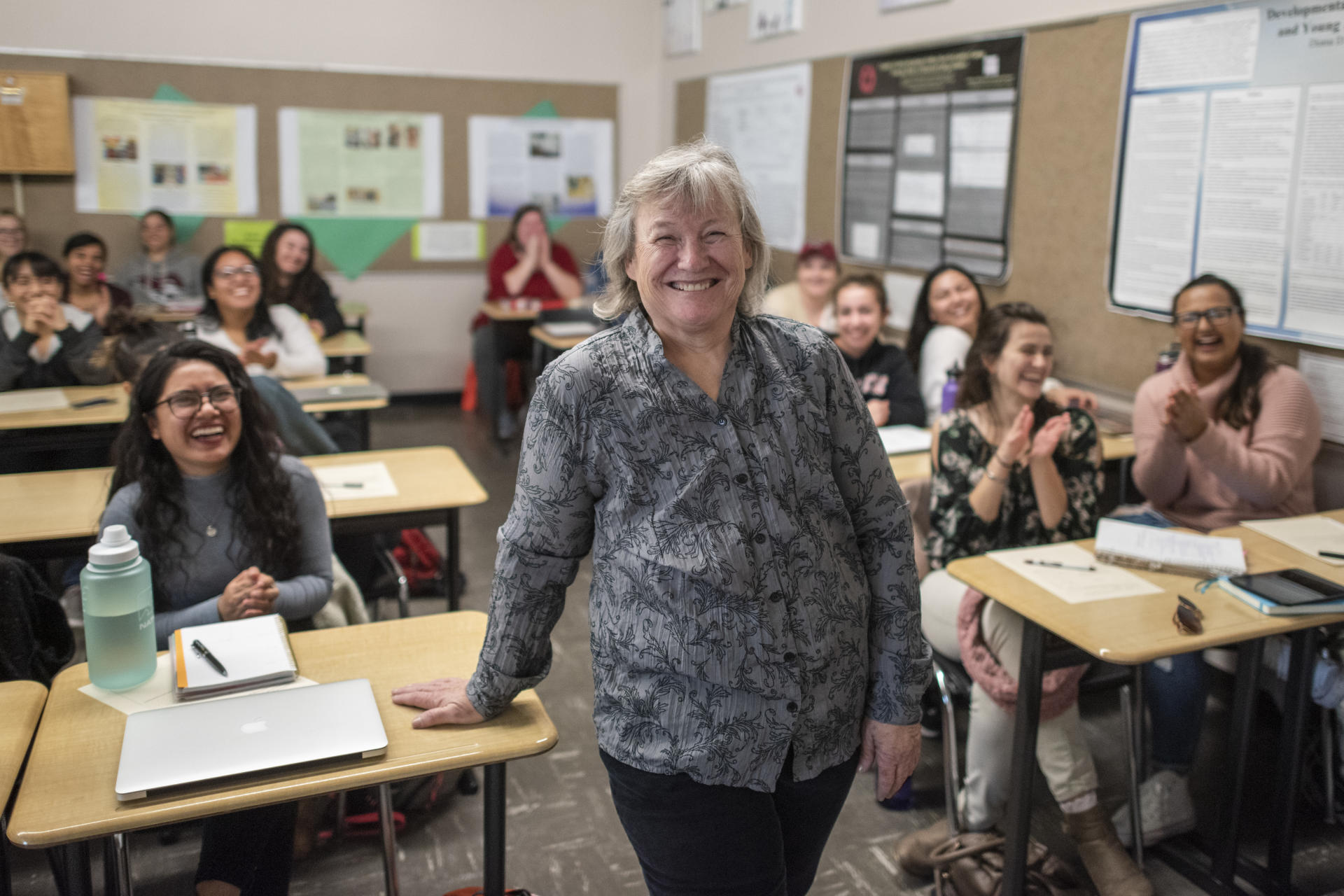
Cindy Ratekin, the University’s 2018-19 Outstanding Academic Advisor
Six members of the California State University, Chico faculty were recently recognized with the 2018–19 Outstanding Faculty Awards, selected by the University’s Faculty Recognition and Support Committee.
These awards, among the highest at CSU, Chico, celebrate faculty excellence in the categories of Outstanding Professor, Teacher, Academic Advisor, Research Mentor, Faculty Service and Lecturer. Every one of these recipients learned they were being recognized during surprise visits from University President Gayle Hutchinson, her Cabinet and colleagues within their respective colleges.
“Through their teaching, scholarly and creative activities, service, and commitment, these outstanding award recipients have positively touched the lives of thousands of students and have benefited the University community as a whole,” President Hutchinson said. “I believe it is important to honor and acknowledge this outstanding work.”
Outstanding Professor
Situated in the fertile Northern Sacramento Valley, it’s no surprise Chico State is a leader in agricultural education. And Eric Houk is combining the University’s location and his economics expertise to provide essential firsthand experiences for his students.
Excelling in research, teaching, and service, Houk has also secured more than $1.5 million in funding and has served as the principal investigator on more than 20 projects.
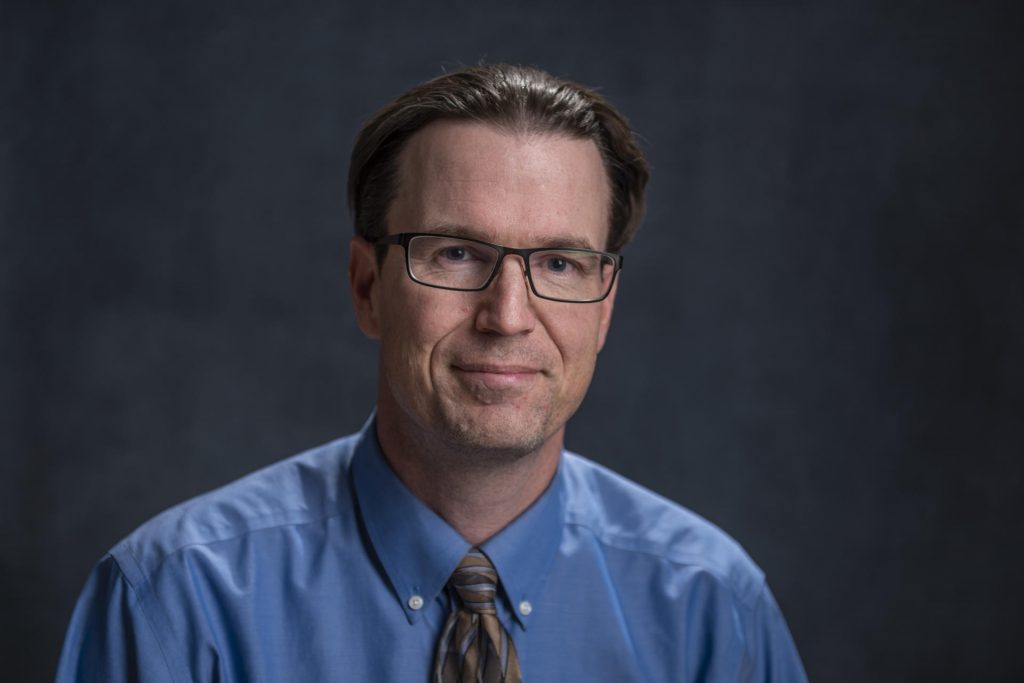
Houk began teaching at Chico State in 2009 and was immediately acknowledged for his dedication to his students. He earned the Professional Achievement Honor for 2014–15, received Chico State’s award for Exceptional Level of Service for 2015–16, and was recently recognized with the Outstanding Undergraduate Teaching Award by the Western Agricultural Economics Association.
Houk said it’s vital for faculty to be engaged in research, and that being actively involved in it allows him to stay current in his field, as well improve his abilities as an educator. This creates a culture in which his students can gain valuable and often multidisciplinary experience.
“I believe my students will learn more if they are exposed to real-world applications of the material,” Houk said. “Being involved in research can help faculty members stay excited about their disciplines, and this enthusiasm is evident in the classroom and is appreciated by our students.”
Houk holds a bachelor’s degree in economics from Frostburg State University in Maryland. He also earned a master’s degree in agricultural economics from the University of Idaho, and a PhD in agricultural and resource economics from Colorado State University.
Outstanding Teacher
Erik Wasinger arrived at Chico State in 2007 with an impressive research background, limited teaching experience, and tremendous potential. In the early years, he employed a traditional teaching style strongly influenced by his own college professors. However, as the years passed, he noticed that his students were beginning to languish in class and weren’t having fun with the material.
Unsatisfied with the direction in which he saw his teaching legacy headed, Wasinger decided to evolve his teaching style, beginning with learning more about his students. During the 2014–15 academic year, he was transformed by the Course Redesign with Technology program.
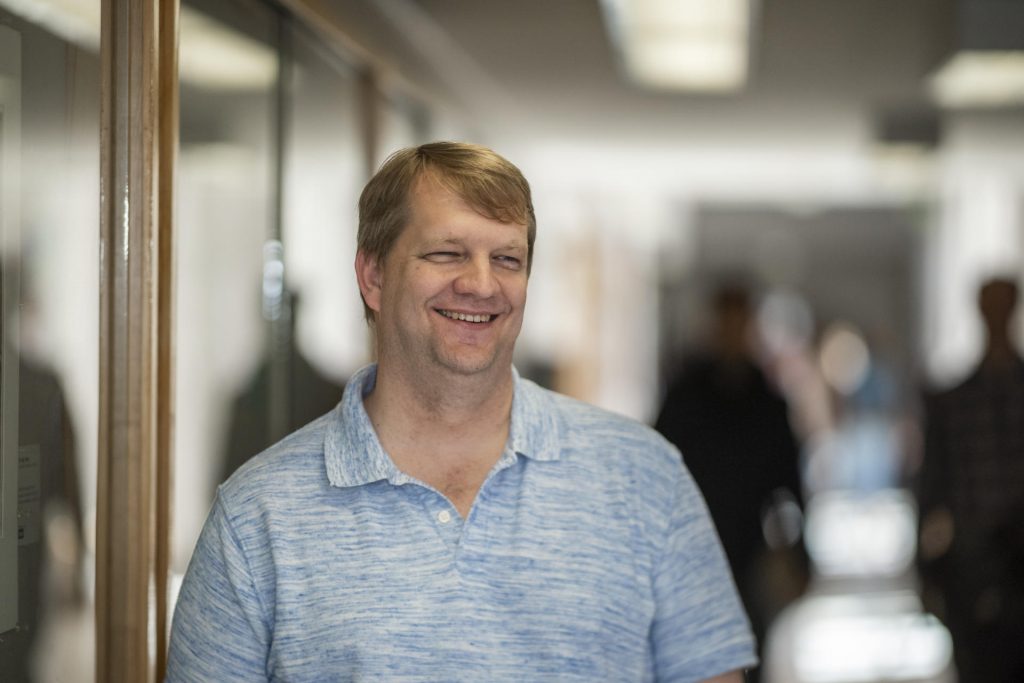
“I learned a lot about our student body—how many face hunger on a daily basis, how many are housing insecure, how many are first-generation students, how many hours they have committed to working at jobs just to pay for the units they’re taking,” Wasinger said. “I also learned about issues they may face such as stereotype effect, belonging syndrome, and others.”
Wasinger transformed his General Chemistry class from a standard lecture format to a progressive hybrid model that includes peer mentoring. This modified teaching method created stronger connections with his students and resulted in remarkable success, so much so that Wasinger was selected to serve as the Chemistry Proven Lead Faculty for the Chancellor’s Office Course Redesign with Technology Program.
This change has revitalized Wasinger.
“My course redesign,” he said, “started with the evolution of the instructor.”
Wasinger holds a bachelor’s degree in chemistry from the California Institute of Technology, and he earned a PhD in inorganic chemistry from Stanford University.
Outstanding Academic Advisor
As chair of the Department of Child Development, Cindy Ratekin wants students to know she’s committed to helping them succeed.
To make sure her students start off on the right foot, one of the first things Ratekin does at the start of every semester is block out 15 to 20 hours a week to advise students—quite a commitment considering she advises 300 child development majors. But to Ratekin, who’s been at the University since 1991, this is her purpose. And this dedication to her work and students plays out in a number of ways, including her work as a faculty advisor for the Child Development Student Association, a leader in civic engagement efforts, and as a Summer Orientation advisor.
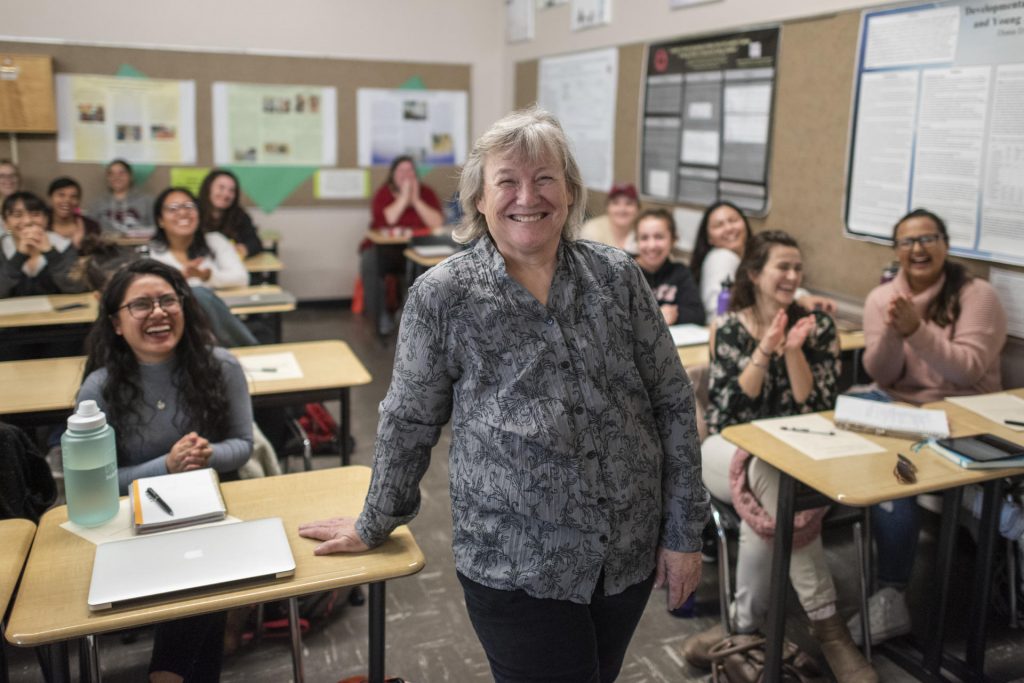
Since becoming department chair in 2010, student advising and administration have become her focus, offering her the opportunity to help ensure Chico State students are work-ready once they graduate.
“The roots of my passion come from my early years as a practitioner and my knowledge of the critical role that our graduates will play as they partner with families and professionals to ensure healthy environments for children,” Ratekin said. “This will contribute to a better future for all.”
Ratekin holds a bachelor’s degree in social science from Pacific Christian College. She also earned her master’s degree in education with an emphasis in early childhood education from San Diego State University, and received her PhD in educational psychology at UCLA in 1990 with a specialization in early childhood special education.
Outstanding Research Mentor
In a field as rich with research possibilities as cultural anthropology, William Nitzky has certainly risen to the challenge.
Since joining the Department of Anthropology in 2015, Nitzky has blossomed in the role of teaching and mentoring students in cultural anthropology and museum studies, as well as producing critically acclaimed films through the Advanced Laboratory for Visual Anthropology (ALVA).
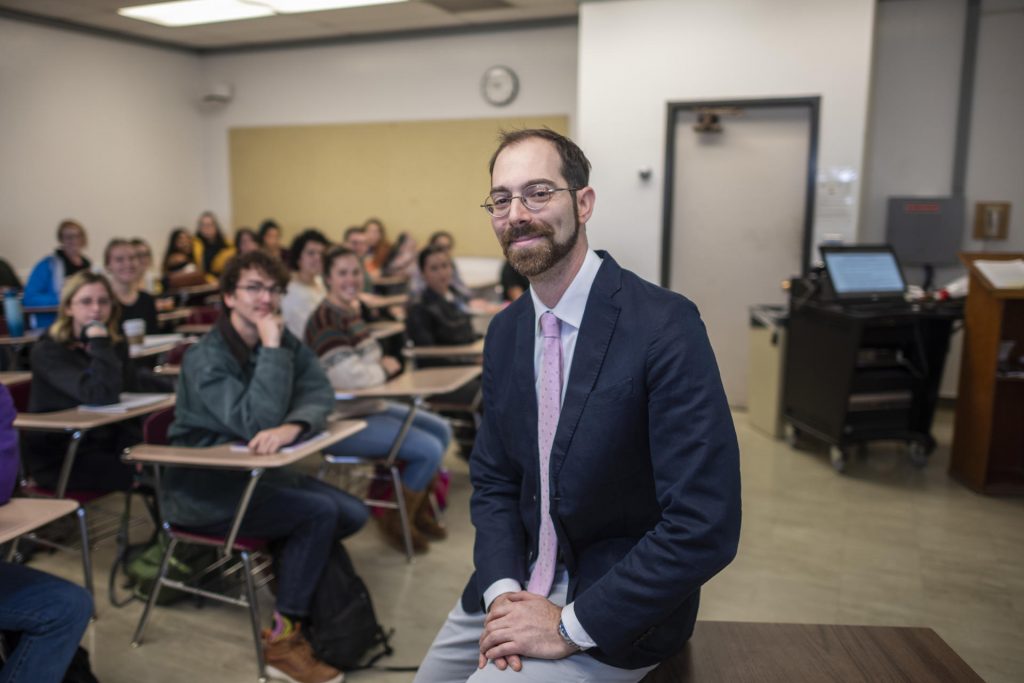
While his research has focused mostly on heritage management, museum development, tourism, and rural development in China and Japan, the breadth of Nitzky’s research interests is diverse. And he involves his students in the process, such as in a recent exhibit at the University’s Valene L. Smith Museum of Anthropology, Imprisoned at Home, as well as the short film Stories in Thread.
Colleagues have described Nitzky as “indispensable” for his committed pursuit of sharing cultures around the world, and exposing his students to how research should and can be done, while exercising enough sensitivity to put his subjects at ease.
Whether he’s researching cultural anthropology with undergrad students or those pursuing their master’s degrees, Nitzky pushes them to understand the nuances, politics, and layers of meaning that constitute a culture. And with ALVA and the Valene L. Smith Museum of Anthropology at his disposal, there’s no shortage of opportunity.
“I cannot emphasize enough how important it is to give students the right tools, training, opportunities to grow as professionals and foster greater civic engagement,” Nitzky said.
Nitzky holds a bachelor’s degree in East Asian languages and literature from the Elliot School of International Affairs. He also earned a master’s degree in Asian studies from the University of Hawaii at Manoa, and a PhD in anthropology from Arizona State University.
Outstanding Faculty Service
Over the span of three decades teaching at Chico State, Jeff Livingston has served campus in many ways: He has been on 34 graduate committees (10 of which he chaired), and has sat on 31 other campus committees, including the Enrollment Management Advisory Committee, the Campus Fee Advisory Committee, and, most recently, the President’s Post-Camp Fire Touch Base Working Group.
As faculty in the University’s Department of History since 1989, Livingston has led 11 different courses, while building an outstanding record as a scholar, classroom instructor, student advisor, mentor, and colleague. And in his sixth year as the department’s faculty advisor for the social science pre-credentials major, Livingston has an advising caseload of more than 100 students this semester alone.
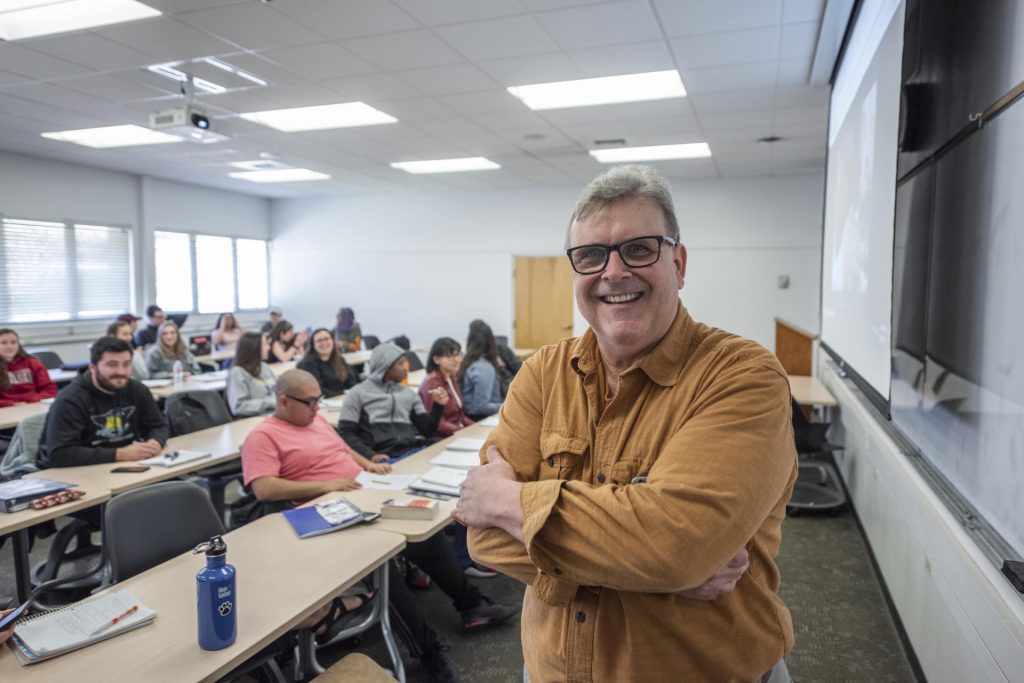
As a first-generation student, he personally understands the importance of obtaining a college degree and remains steadfast in his dedication to working with students who might lack advantages that other students experience.
From causes to committees and from lessons to recognitions, when it comes down to what he values most on campus, Livingston said the people around him stand out above all else as the best part of his job.
“I love working with the students and turning them on to history,” he said, “and most of all, my colleagues in the Department of History who bust their tails every day to help create an ideal work environment.”
Livingston holds a bachelor’s degree in history from Miami University in Ohio. He also earned his master’s degree and PhD in history from the University of Toledo.
Outstanding Lecturer
If Sarah Pape represents the future of teaching creative writing at Chico State, then our students are in extremely capable hands.
An adjunct faculty in the Department of English at Chico State since 2003, she currently teaches courses in creative writing, editing and publishing, and advanced composition. As the managing editor for Watershed Review, the twice-annual literary magazine published by the Department of English, she guides her student editors through understanding the rigors and nuances of editing and writing in a professional setting, while exposing them to industry trends.
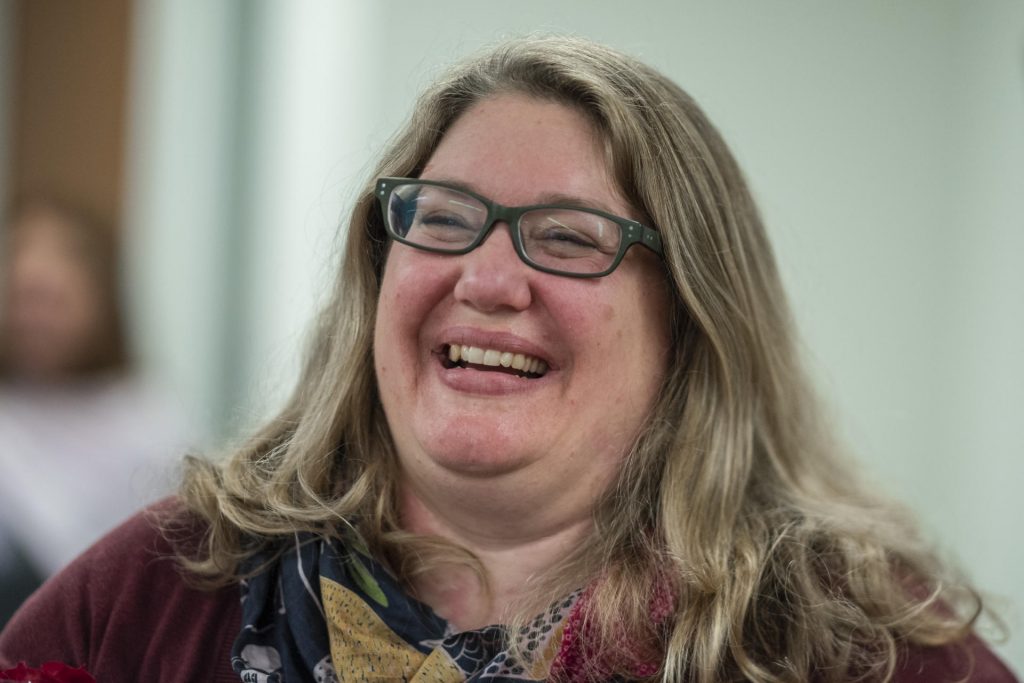
Pape’s Chico State roots are strong, having earned her bachelor’s degree here in ’03, as well as her Master of Fine Arts in 2006. And aside from leading the Watershed Review staff, she is a prolific author herself, publishing 13 pieces of her prose and 10 poems since 2012. And last November, The New York Times published an essay penned by Pape, “When Paradise Is On Fire.”
As a teacher of her craft, Pape remains open to learning from her classes and says it’s a privilege to support her students in her editing classes and help them with their own professional goals.
“Working with students is always a discovery process for me as well, creatively and intellectually,” she said, “and it gives back tenfold.”
In addition to obtaining her bachelor’s and master’s degrees from Chico State, Pape also earned a Master of Fine Arts degree in creative writing from Pacific Lutheran University.


